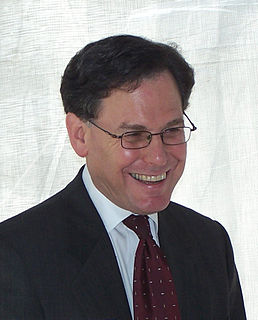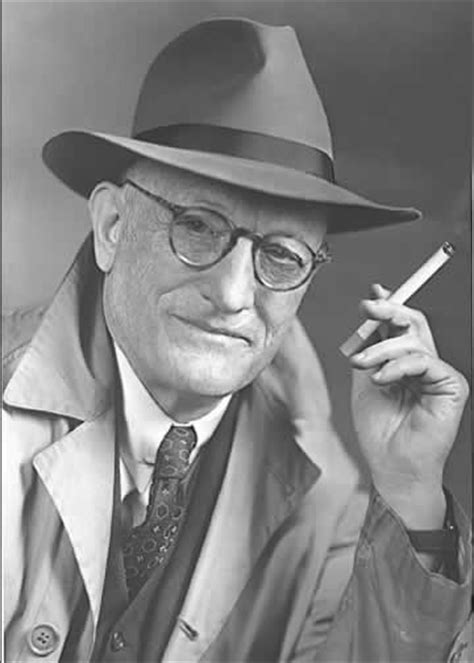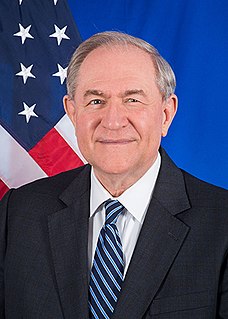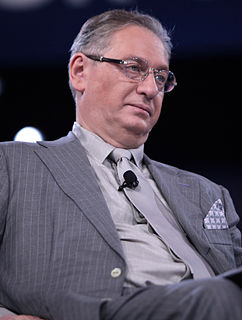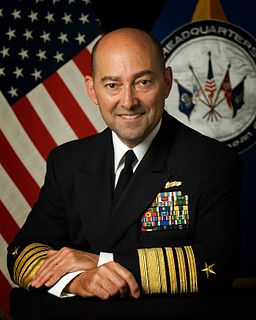A Quote by Glenn Greenwald
Many of the benefits from keeping terrorism fear levels high are obvious. Private corporations suck up massive amounts of Homeland Security cash as long as that fear persists, while government officials in the National Security and Surveillance State can claim unlimited powers and operate with unlimited secrecy and no accountability.
Quote Topics
Fear
Government
Accountability
Benefits
Cash
Claim
Corporations
Government Officials
High
Homeland
Homeland Security
Keeping
Levels
Long
Many
Massive
National
National Security
Obvious
Officials
Operate
Powers
Private
Secrecy
Security
State
Suck
Surveillance
Surveillance State
Terrorism
Unlimited
Unlimited Power
Up
While
Related Quotes
The corporations that profit from permanent war need us to be afraid. Fear stops us from objecting to government spending on a bloated military. Fear means we will not ask unpleasant questions of those in power. Fear permits the government to operate in secret. Fear means we are willing to give up our rights and liberties for promises of security. The imposition of fear ensures that the corporations that wrecked the country cannot be challenged. Fear keeps us penned in like livestock.
Anne Richard, a senior U.S. State Department official, testified at a Senate Homeland Security Committee hearing in November 2015 that any Syrian refugee trying to get into the United States is scrutinized by officials from the National Counterterrorism Center, FBI, Department of Homeland Security, State Department and Pentagon.
We have a media that goes along with the government by parroting phrases intended to provoke a certain emotional response - for example, "national security." Everyone says "national security" to the point that we now must use the term "national security." But it is not national security that they're concerned with; it is state security. And that's a key distinction.
I was an Army intelligence agent and a veteran during the Cold War, assigned to West Germany. I was the chairman of the National Commission on Homeland Security and Terrorism for the United States for five years. I was a person who has dealt extensively with these homeland security issues. I was a governor during the 9/11 attack.
I'm not interested in embarrassing the United States. We as a nation need to foster a broader understanding of national security, and when in the name of national security the US government both overtly and covertly aligns itself with the apartheid state and against heroic freedom fighters for racial justice ... Not only in 1962 but also keeping in mind that Mandela was on the US terror watch list until 2008, that kind of myopic understanding of national security has devastating consequences.
The fact that some former national security officials challenge the policy wisdom of the order, while other national security officials - most notably those of this [Donald Trump's] administration - support it, merely demonstrates that these are policy disputes that the judiciary is both ill-equipped and constitutionally barred from arbitrating.
ISIL, AQ, now have the ability to literally reach into our homeland through social media, through the Internet, to recruit and inspire. It makes for a more complicated homeland security environment. And so it requires a whole of government approach, not just military and law enforcement, homeland security, aviation security, and the like.
The population becomes the internal enemy. Any sign of life, of protest, or even mere doubt, is a dangerous challenge from the standpoint of military doctrine and national security. So complicated mechanisms of prevention adn punishment have been developed ... To operate effectively, the repression must appear arbitrary. Apart from breathing, any human activity can constitute a crime ... State terrorism aims to paralyze the population with fear.
National security is a really big problem for journalists, because no journalist worth his salt wants to endanger the national security, but the law talks about anyone who endangers the security of the United States is going to go to jail. So, here you are, especially in the Pentagon. Some guy tells you something. He says that's a national security matter. Well, you're supposed to tremble and get scared and it never, almost never means the security of the national government. More likely to mean the security or the personal happiness of the guy who is telling you something.


